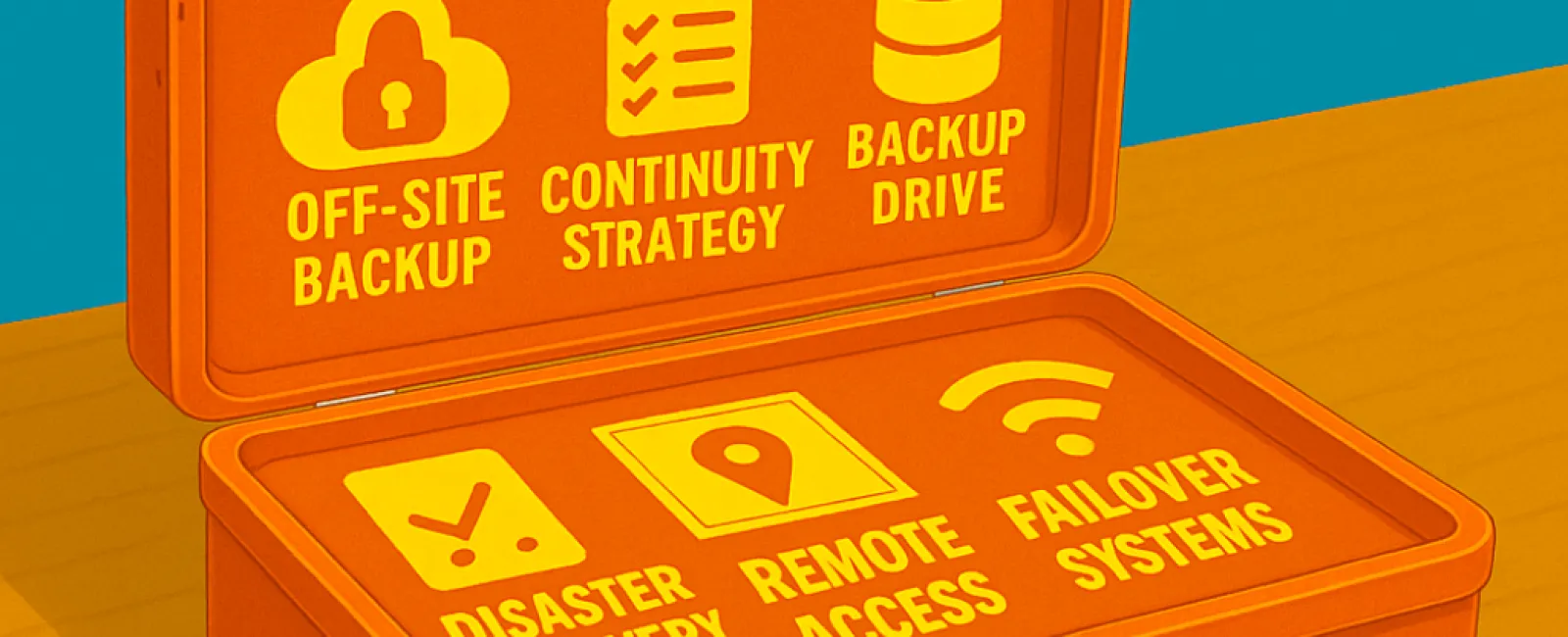July 28, 2025
Unexpected power outages, cyberattacks, hardware malfunctions, and natural disasters can strike without warning, causing severe disruption for small businesses. Many believe that simply having backups is sufficient, but restoring a file alone doesn't guarantee your business stays operational. Without access to essential systems, support for remote work, or clear communication with your team and clients, even brief interruptions can lead to prolonged setbacks. Partnering with a dependable IT provider means preparing not just with backups, but with a comprehensive strategy to keep your business running smoothly no matter what challenges arise.
Backups Are Just the Beginning — True Protection Requires Continuity
Backups are vital, but they represent only one piece of the puzzle. What your business truly needs is a robust business continuity plan—a forward-thinking approach that ensures seamless operations during and after any disruption.
When systems fail, files become unreachable, or your physical office is compromised, having a backup stored locally offers little relief. Without a well-defined plan to quickly restore functionality, you risk significant losses in revenue, reputation, and regulatory compliance.
Understanding the Critical Difference: Backups vs. Business Continuity
Many businesses make the mistake of relying solely on backups:
●
Backups enable data restoration.
●
Continuity ensures your business remains fully operational regardless of circumstances.
A comprehensive continuity plan addresses essential questions such as:
●
What is our recovery time objective?
●
Where will our team operate if the office is inaccessible?
●
Which systems are mission-critical?
●
Who has the authority to initiate the recovery process?
Key elements of a strong continuity plan include:
●
Encrypted, off-site, and immutable backups
●
Clearly defined recovery priorities and timelines (RTO/RPO)
●
Preparedness for remote work scenarios
●
Redundant systems and automatic failover mechanisms
●
Regular disaster recovery drills and testing
If your IT provider cannot confidently guide you through these critical components, your business isn't protected — it's merely surviving by chance.
Could This Happen to Your Business?
This is not just fear-mongering; these are real incidents with tangible impacts. Recently:
●
Florida hurricanes forced hundreds of businesses to shut down, leaving those without cloud access completely immobilized.
●
North Carolina flooding wiped out on-site servers, erasing months of critical records and invoices.
●
California wildfires destroyed entire office buildings in the Pacific Palisades, many lacking off-site recovery plans.
●
Numerous small businesses targeted by ransomware attacks discovered their backups were either corrupted or untested.
Disasters don't discriminate; they affect businesses of all sizes every day.
Essential Questions to Ask Your IT Provider Today
If disaster struck tomorrow, would your business keep running?
Make sure to ask your IT provider:
●
How quickly can we recover from a ransomware attack?
●
Are our backups regularly tested, and which systems are covered?
●
What is the contingency plan if a flood or fire renders our office unusable?
●
Does our business continuity plan comply with all relevant industry regulations?
●
Can we continue to serve clients effectively if our team must work remotely?
If you don't have complete confidence in these answers, your business may already be vulnerable.
Disasters Are Inevitable. Downtime Doesn't Have To Be.
While you can't prevent every power outage, storm, or cyberattack, you can control how your business responds.
A reliable IT provider helps you recover.
An exceptional one ensures your business never misses a beat.
Curious about your current preparedness?
Click Here or call us at 609-676-3597 to schedule your FREE 15-Minute Discovery Call, and let's make sure a disaster never turns into downtime.





